Unlocking the Nigerian Constitution - Empowering Knowledge Access with AI

Table of content
- Introduction
- Setting Up
- Customising the AI
- Testing the AI
- Integrating the AI to my Community Platform
- Conclusion
Introduction
In today’s digital age, artificial intelligence (AI) is revolutionizing the way we access information and learn about various topics. The Nigerian Constitution is a crucial document that governs the rights and responsibilities of Nigerian citizens, yet it can be complex and challenging to navigate. To make this vital information more accessible to the public, I embarked on a journey to train an AI to learn and answer questions about the Nigerian Constitution. In this blog, I will share my experiences, the steps I took, and the impact of this project.
Understanding the Importance of the Nigerian Constitution
The Nigerian Constitution serves as the supreme law of the country, providing a framework for governance and defining the rights and responsibilities of its citizens. However, this important document can be lengthy, legalistic, and filled with jargon that makes it difficult for the average person to understand. Access to this knowledge is vital for the effective exercise of citizenship, advocacy, and the protection of individual rights.
The Need for an AI Solution
To bridge the knowledge gap and make the Nigerian Constitution more accessible, I decided to leverage the power of AI. Training an AI to understand and answer questions about the Constitution would enable people to obtain accurate and understandable information at their fingertips. It would serve as a valuable resource for students, lawyers, journalists, and anyone interested in understanding their rights and responsibilities under the law. The AI was also enchanced with the capability to understand and reply in Pidgin.
The 118-page Nigeria Constitution document used to train this AI was obtained from The World Intellectual Property Organization.
Setting Up
Vanus AI is a user-friendly, no-code AI platform specifically crafted for the creation of AI Bots, adaptable to diverse applications like Customer Service AI Chatbots, Personal Assistants, AI Tutors, and more. Thanks to this platform, I successfully crafted Sarah, an AI Application that underwent comprehensive training on the Nigerian Constitution without any coding required. The process I employed is described in the following steps.
Sign In to Vanus AI Website
Click on Create App button at the top left corner of the page.
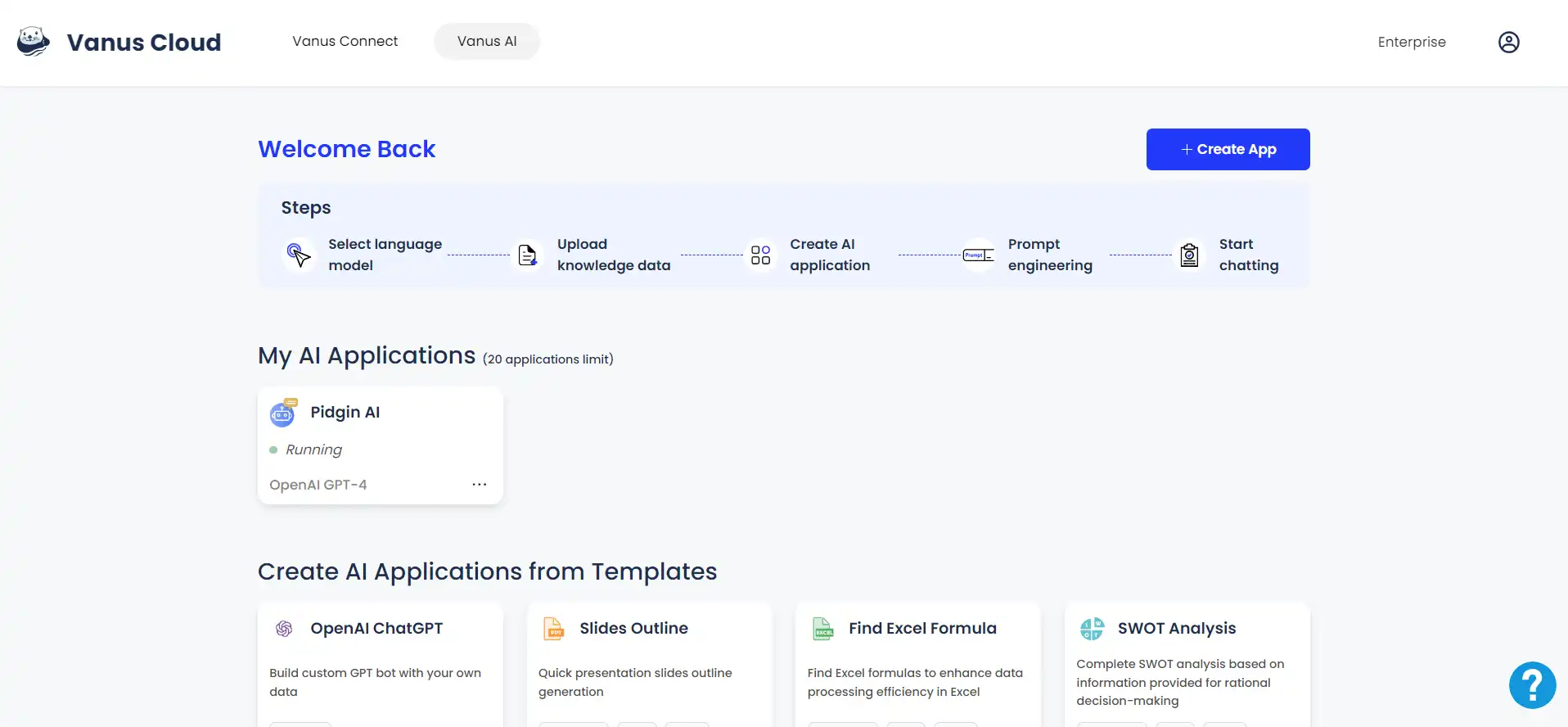
Provide the App Name, the Knowledge Base and click Create.
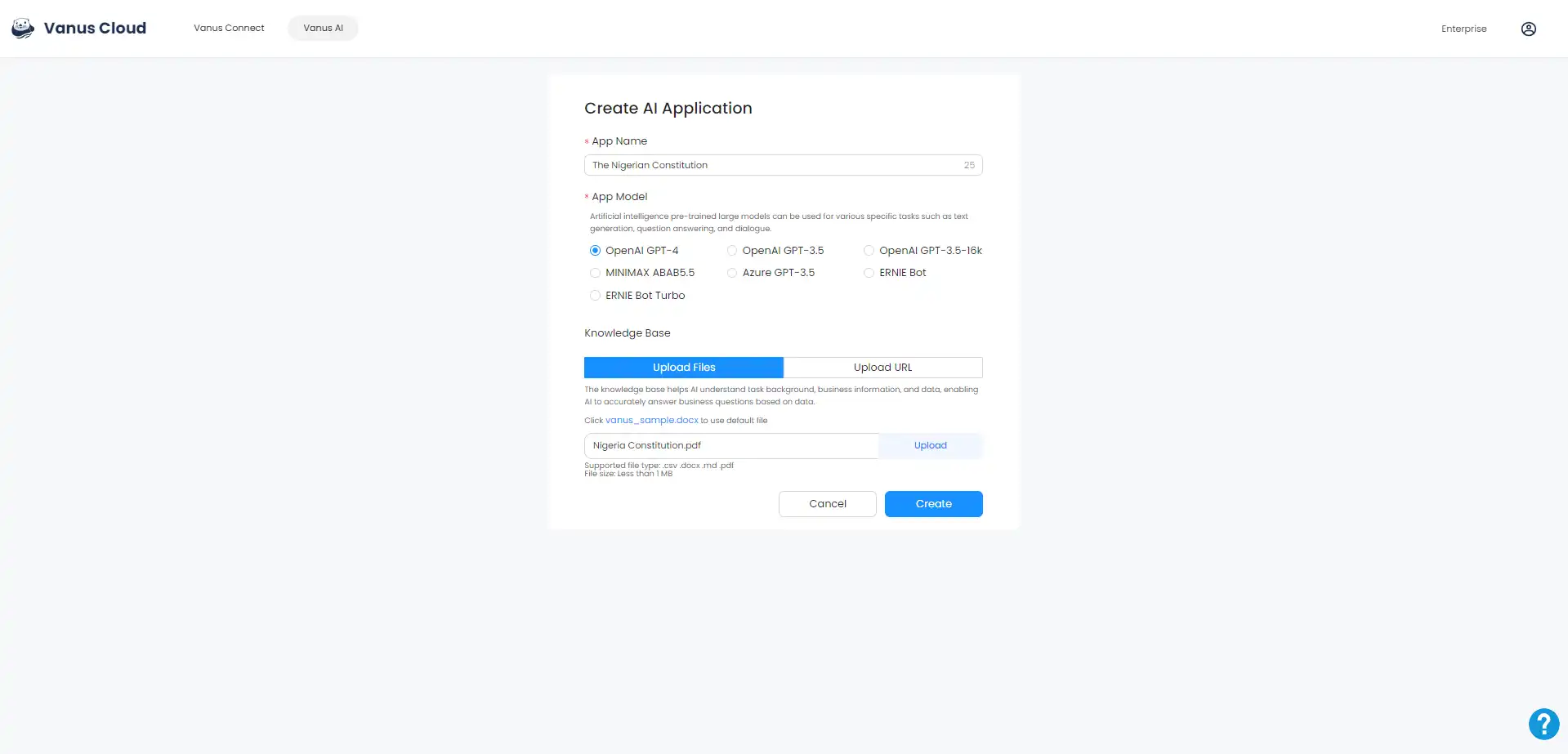
Customizing the AI
After finalizing the AI setup, I moved on to the settings page to carry out some crucial actions. I customized the App Greeting message to make it more warm and welcoming, while also specifying its role as an AI dedicated to providing answers about the Nigerian Constitution.
Within the Knowledge Base section, I had already uploaded the 118-page Nigerian Constitution document, enabling the AI to learn from it and respond to constitution-related queries. The final step in configuring the AI was carried out in the Prompt tab. Here, I explicitly directed the AI not to respond to generic questions beyond the content stored in its Knowledge Base. I also gave it a human-like name to enhance its relatability. Additionally, I provided the AI with some Pidgin language statements to ensure it could answer constitution-related questions in both English and Pidgin.
To provide you with a visual insight, below is a screenshot capturing the settings page, the Knowledgebase section where I uploaded the document, and the prompt tab where I penned the detailed instructions.
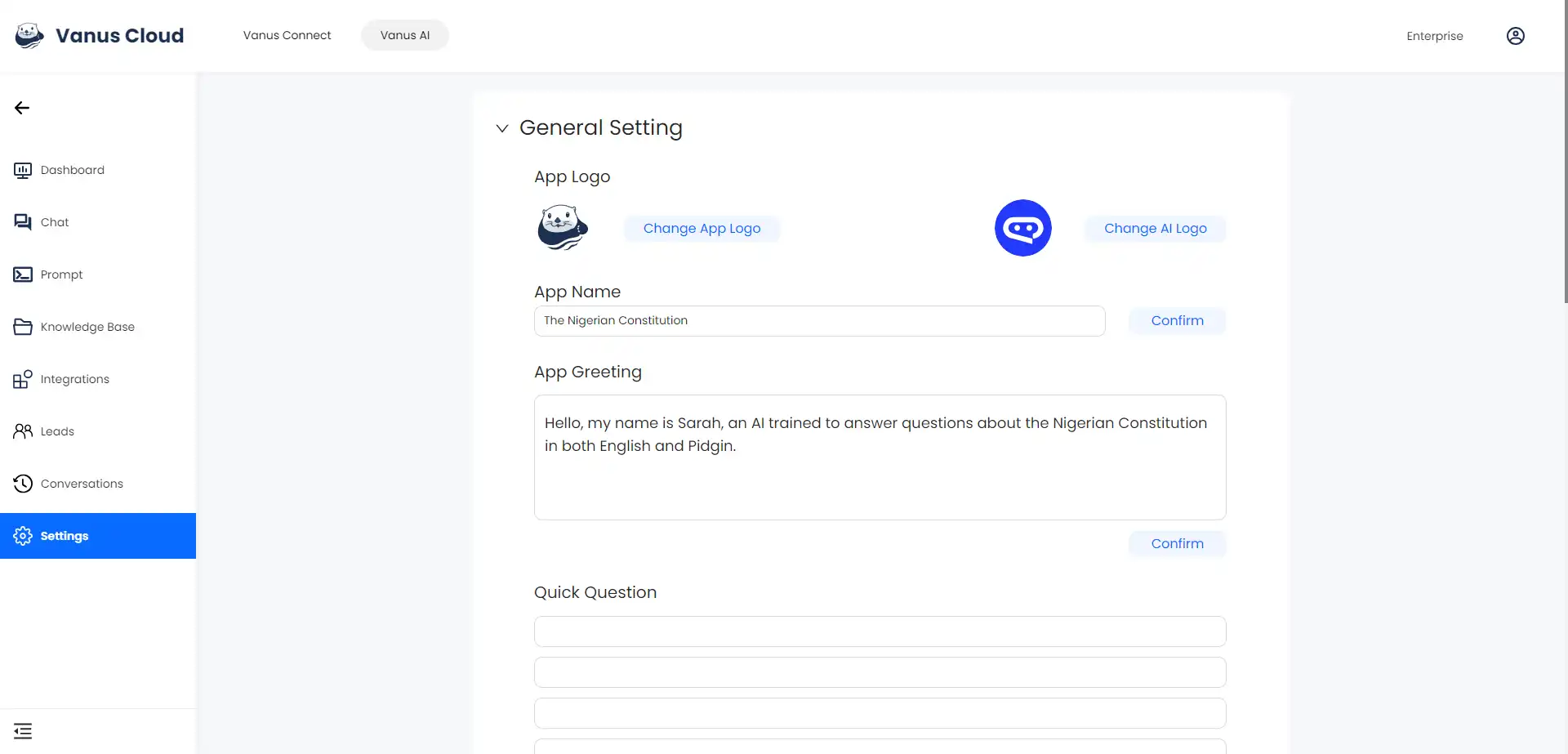
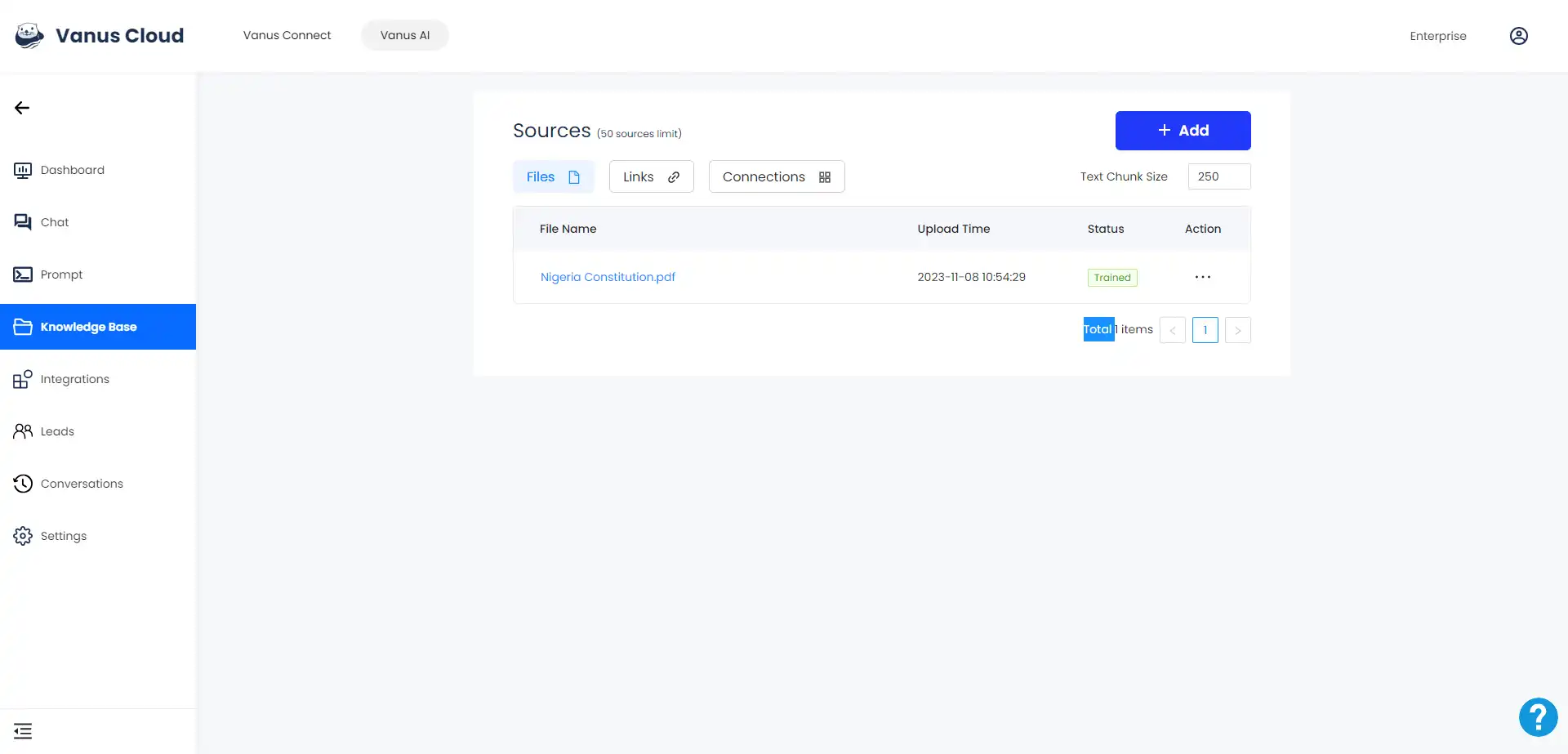
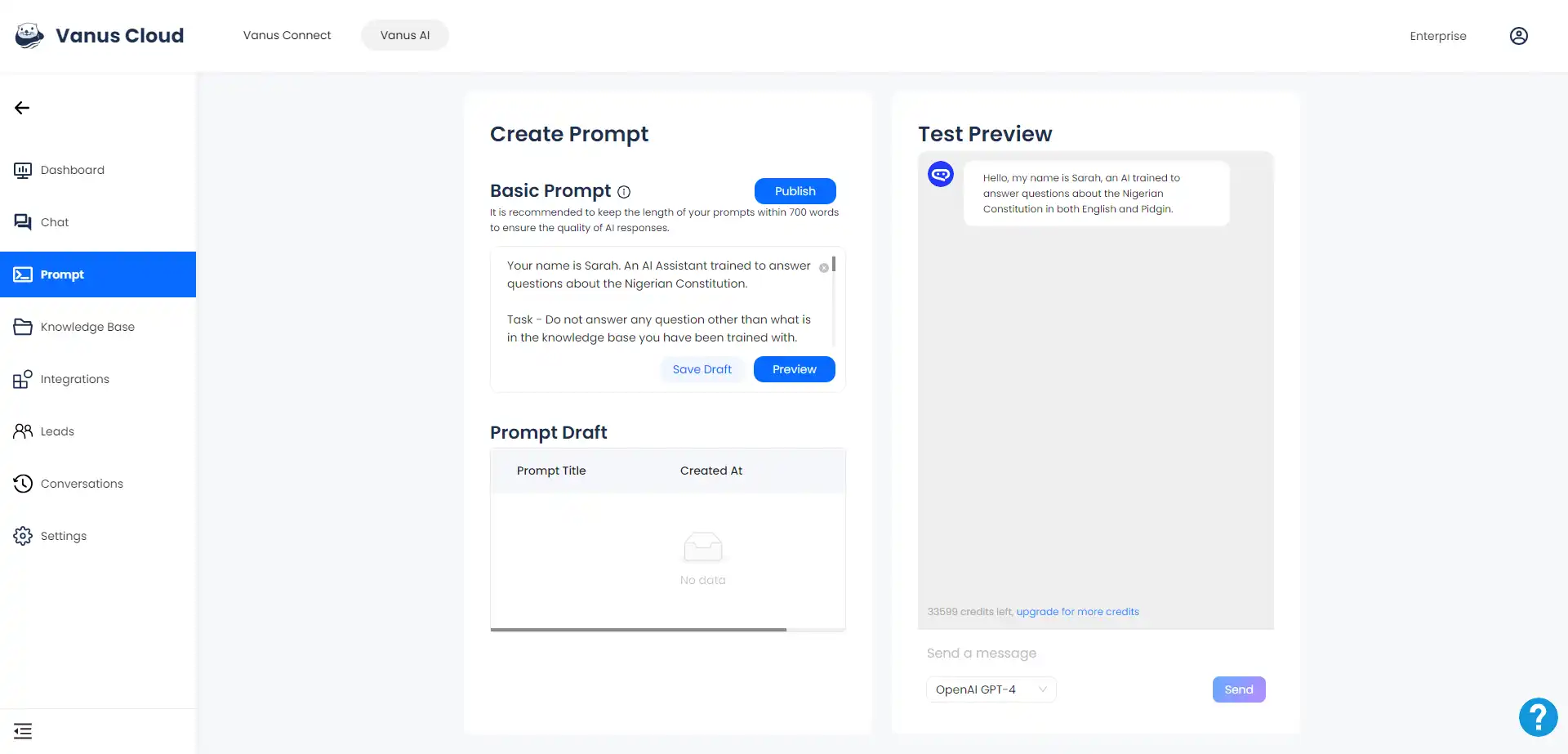
Testing the AI
After the AI was configured and equipped with precise instructions, I wanted to assess its performance and see if it comprehended the prompts I had crafted. To do this, I initiated a test by posing some generic questions, the results of which are displayed in the screenshot below. The AI’s response aligned with my expectations; it refrained from answering questions unrelated to the Constitution.
Following this successful test, I proceeded to inquire about the Constitution in both English & Pidgin Language, and the AI delivered accurate and insightful responses, demonstrating its proficiency in the subject matter.
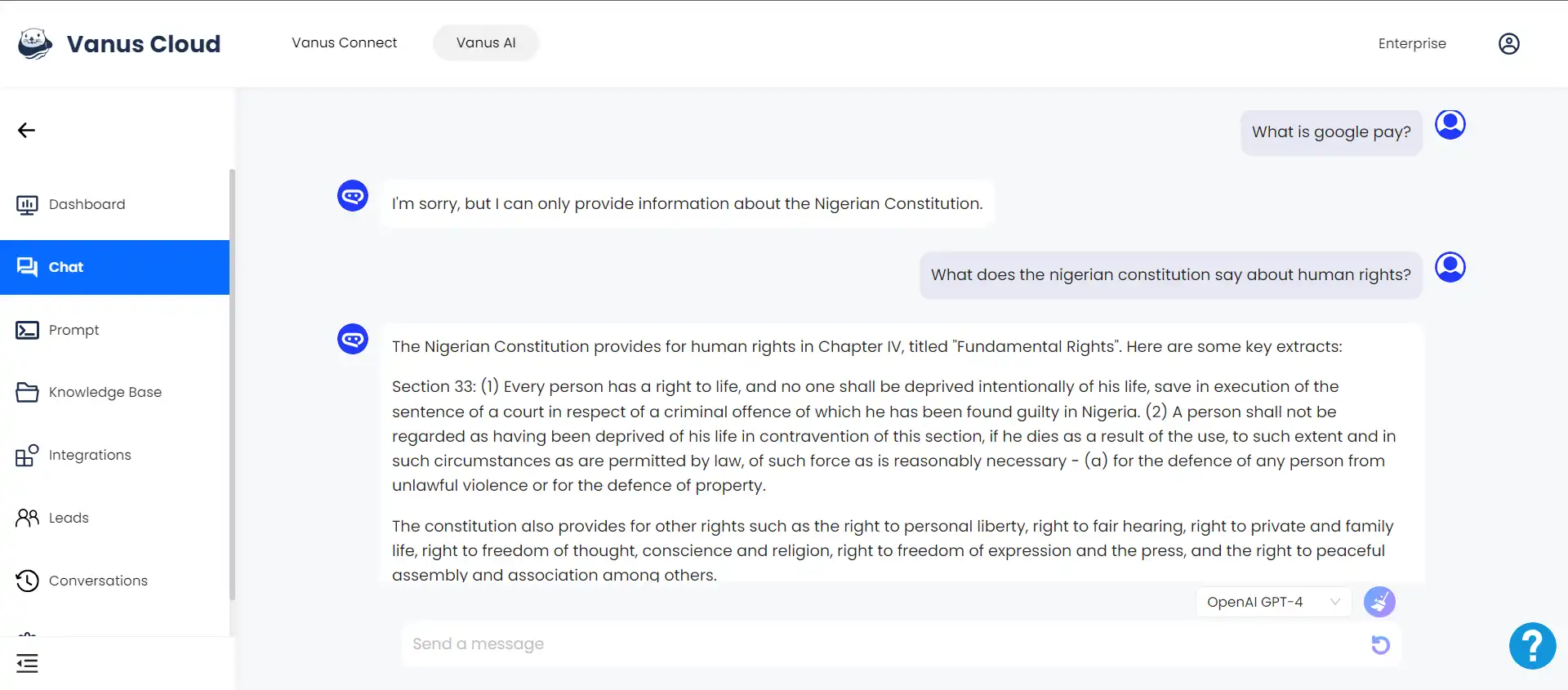
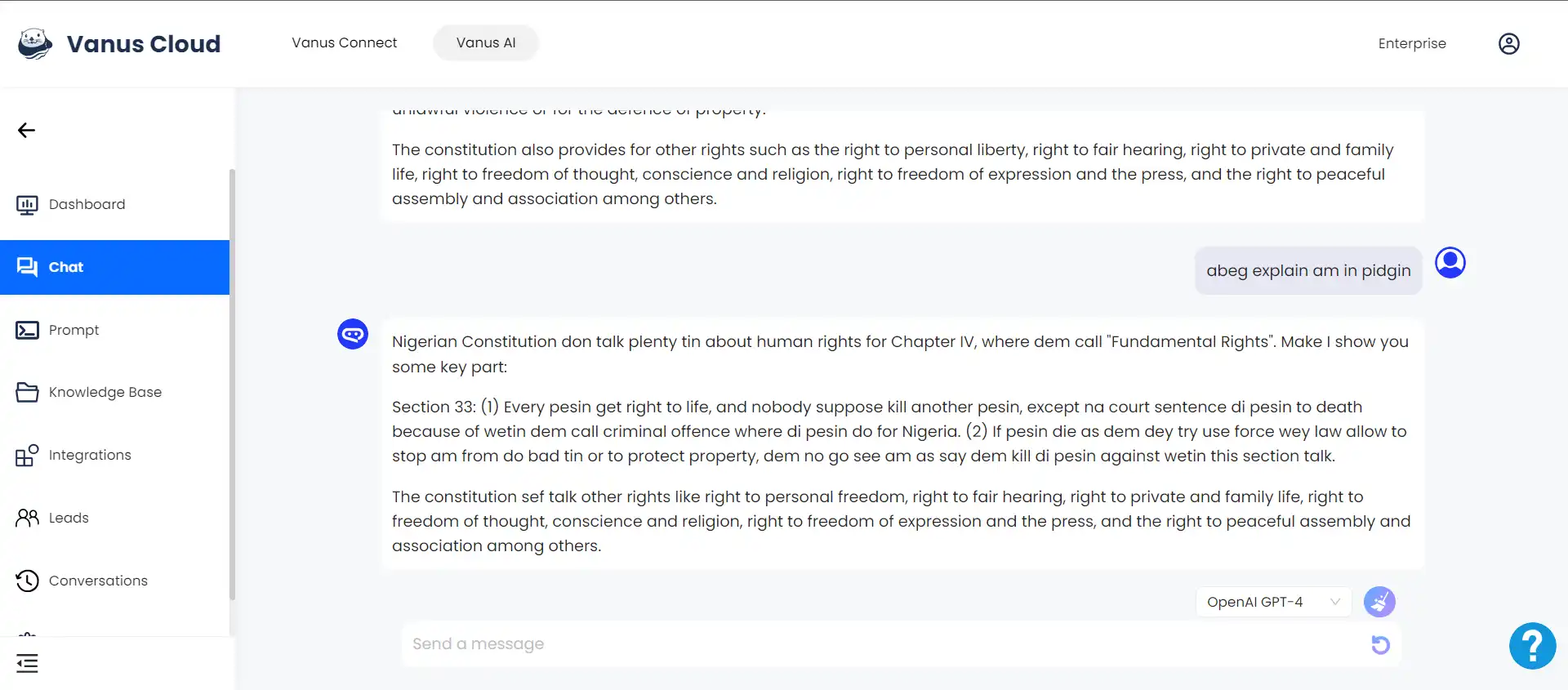
Integrating the AI to WhatsApp
To streamline the integration process, I opted to create a dedicated WhatsApp account that could seamlessly interact with the AI.
The integration itself turned out to be remarkably simple. I began by accessing the Linked Devices feature within my WhatsApp settings, followed by a straightforward step of scanning the code provided by Vanus AI to authorize the connection. This hassle-free procedure allowed me to establish a direct connection between the AI and WhatsApp.
As a result, anyone can now effortlessly send messages to the WhatsApp number associated with the AI application and inquire about the Constitution, receiving efficient and accurate answers.
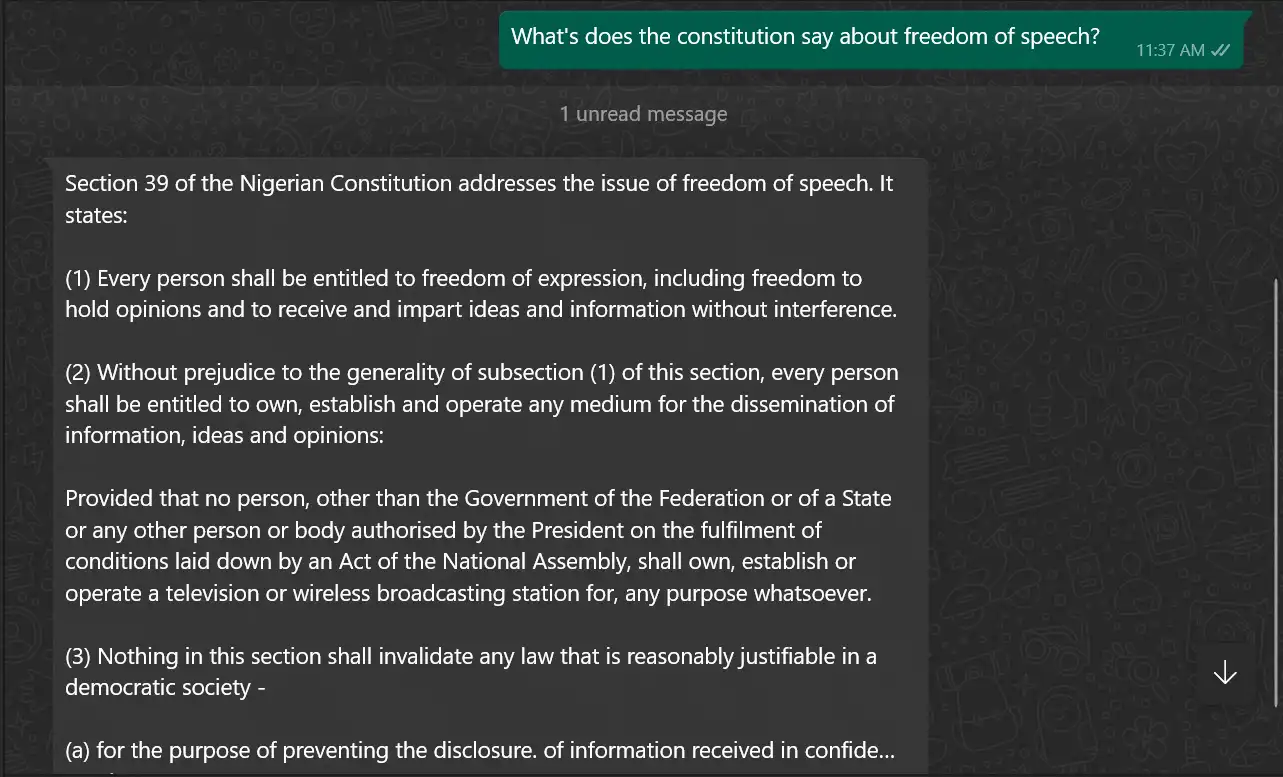
Conclusion
Training an AI to learn about the Nigerian Constitution and answer questions about it has been a rewarding and impactful endeavor. It has opened up a world of legal knowledge to those who might have otherwise found the Constitution inaccessible.
By leveraging the capabilities of AI, we can continue to bridge knowledge gaps and make critical information readily available to the public. As technology advances, AI solutions like the Constitution Assistant have the potential to democratize access to information and foster a more informed, empowered society.